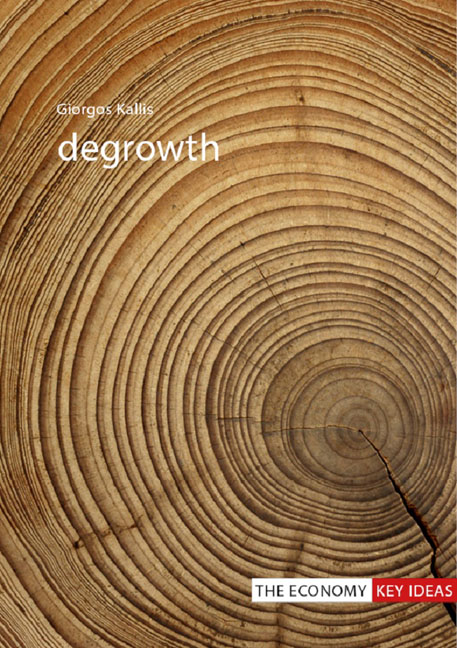6 - Controversies, debates and future research
Published online by Cambridge University Press: 09 August 2023
Summary
I do not need to tell you that degrowth is not part of mainstream discourse and that it has made no headway in market economics, for which questioning growth is anathema. Some ecological and political economists, though, have felt the need to engage with the degrowth (hypo)thesis, given its popularity within social and environmental movements. This chapter reviews the key debates that have taken place between critics or sceptics of degrowth and its advocates. Through these conversations I identify the weaker aspects of the theory of degrowth, as well as areas where more research would be most welcome.
Is degrowth necessary and is it feasible?
Green growth, a-growth and degrowth
For green growth advocates, degrowth is not only impossible, it is also unnecessary, since economic growth and technological progress can enable us both to have more stuff and to reduce resource use and carbon emissions. A few countries, mostly in Europe, have exhibited declining carbon emissions during the last two decades despite sustained growth (Aden 2016). Technological studies also project feasible scenarios for a world powered by renewable (Jakobson et al. 2010) or nuclear power. Expenditure on a largescale energy transition may stimulate growth and create new jobs, so green growth advocates claim.
I engaged with these arguments in chapter 4 but let me recap the main responses to these ideas here.
1. Once trade effects have been taken into account, fewer countries have experienced an absolute decoupling of emissions than is typically reported. In terms of resources, there are almost no cases of absolute decoupling (Wiedman et al. 2014).
2. What is possible in one country is not necessarily generalizable to all others. Switzerland can be a bank economy and Luxembourg a service economy, but the whole world cannot consist of Switzerlands and Luxembourgs.
3. Declining carbon emissions are often the result of one-off changes, such as the substitution of coal with natural gas. It is harder to sustain these rates of reduction in emissions once the substitution has been completed, especially if energy use grows.
4. Even though the substitution of fossil fuels by cleaner forms of energy cannot (and should not) be ruled out, these sources of energy also have an impact. With perpetual economic growth and growth in energy use, these impacts will grow too.
- Type
- Chapter
- Information
- Degrowth , pp. 149 - 190Publisher: Agenda PublishingPrint publication year: 2018



